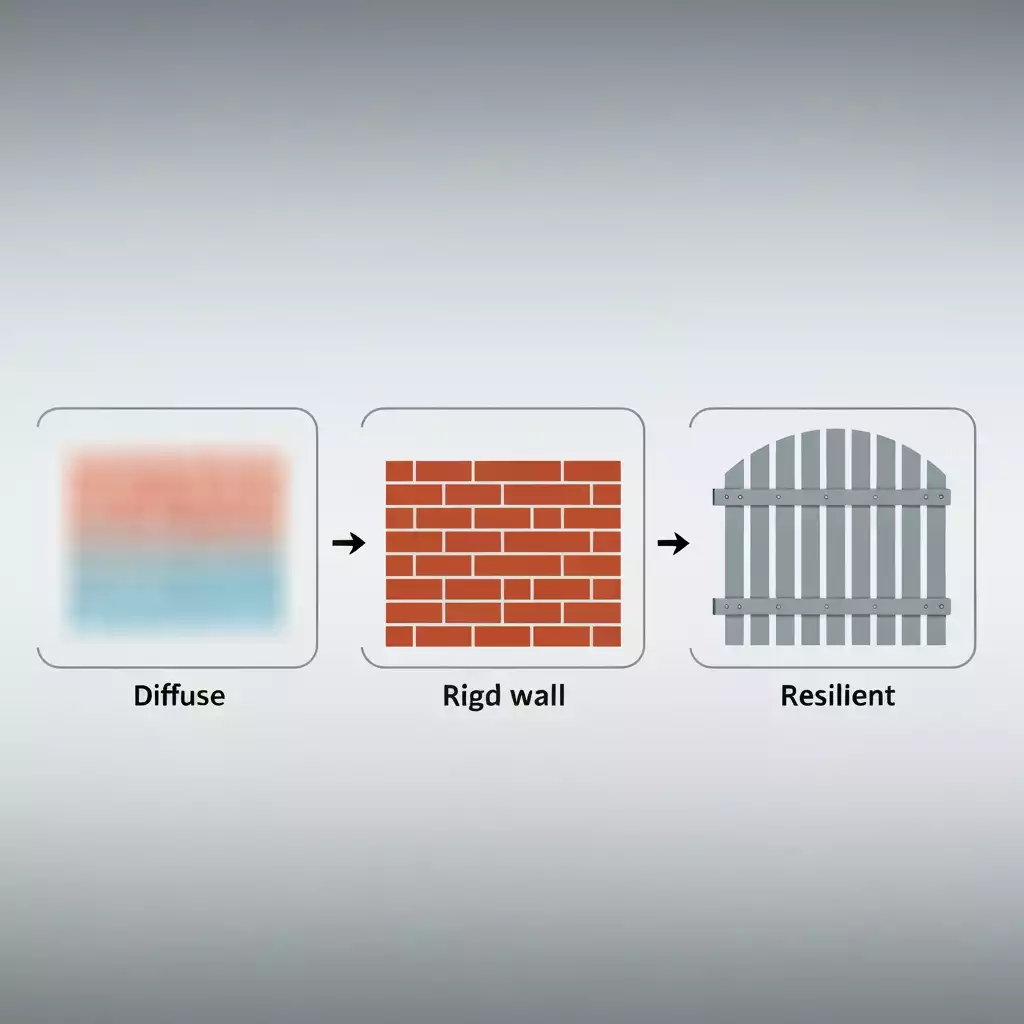Have you ever found yourself feeling drained after a conversation, even when everything seemed fine? Emotional boundaries are essential tools for protecting our mental health and well-being. By understanding and implementing these boundaries, we can foster better relationships and maintain our emotional integrity.
What You Will Learn
- Emotional boundaries help protect your mental health by separating your feelings from those of others.
- Establishing emotional boundaries fosters healthier communication and strengthens relationships.
- There are three types of emotional boundaries: diffuse, rigid, and flexible, each affecting relationships differently.
- Developing emotional intelligence enhances your ability to recognize and respect your own boundaries and those of others.
- Self-care and validation are crucial for maintaining emotional boundaries and overall well-being.
- Cultural perspectives significantly influence how we perceive and establish emotional boundaries.
- Understanding emotional labor can help you identify when your boundaries are being compromised and take necessary steps to protect them.
Understanding Emotional Boundaries: A Fundamental Concept for Mental Wellbeing
Have you ever felt overwhelmed by someone else’s emotions? Emotional boundaries are crucial for our mental health, as they help us separate our feelings from those of others. They act like an invisible line that protects our emotional landscape, allowing us to maintain our integrity and mental wellbeing. Without them, we can easily become drained or stressed by the emotional tides of others.
Establishing these boundaries can lead to healthier relationships and a more balanced life. When we recognize our limits, we can communicate effectively and engage with others more meaningfully. It’s about creating a safe space where we can thrive emotionally!
Defining Emotional Boundaries and Their Importance
So, what exactly are emotional boundaries? They are the limits we set on our emotional involvement with others, defining how much we share and how much we allow others to impact us. These boundaries are essential for several reasons:
- They protect our emotional health from being overwhelmed by others’ feelings.
- They promote self-respect and personal integrity.
- They enable healthier communication and relationships.
By understanding and practicing emotional boundaries, we can cultivate stronger relationships and enhance our personal growth. It’s important to recognize that setting these boundaries is not selfish; rather, it’s a form of self-care that allows us to be our best selves! The American Psychological Association emphasizes the importance of boundaries in maintaining healthy relationships and individual well-being.
How Emotional Boundaries Differ from Other Types of Boundaries
Emotional boundaries are just one type of boundary we navigate daily. It’s important to differentiate them from other boundaries like physical, time, and material boundaries. Here’s a quick comparison:
- Physical boundaries: These relate to personal space and physical touch.
- Time boundaries: These involve how we allocate our time to others versus ourselves.
- Material boundaries: These determine our limits around sharing possessions and resources.
Each type of boundary plays a unique role in our lives. While physical and material boundaries might feel more straightforward, emotional boundaries require us to dig deeper into our feelings and interactions. It’s this depth that allows us to create richer, more meaningful connections with those around us!

The Psychology Behind Emotional Boundaries: Types and Effects
Identifying the Three Types of Boundaries: Diffuse, Rigid, and Flexible
Understanding the different styles of emotional boundaries can significantly impact our mental health. Here are the three main types:
- Diffuse boundaries: These are characterized by a lack of clear limits, leading to over-involvement with others.
- Rigid boundaries: These create a wall, making it hard to connect with others but protecting against emotional vulnerability.
- Flexible boundaries: These allow for healthy give-and-take in relationships, promoting both closeness and independence.
Assessing which type of boundary we tend to lean towards can help us navigate our emotional landscape more effectively. For instance, if you find yourself feeling overwhelmed often, you might have diffuse boundaries that need attention. On the other hand, if you struggle to connect with others, rigid boundaries might be at play! Research published in the National Center for Biotechnology Information highlights the impact of boundary types on psychological well-being.
How Emotional Boundaries Impact Relationships
Healthy emotional boundaries are vital for fostering strong, respectful relationships. They play a significant role in various contexts, including:
- Romantic partnerships: Boundaries help establish trust and intimacy.
- Friendships: They allow for balance between giving and receiving support.
- Professional settings: Understanding boundaries helps maintain a healthy work-life balance.
When both parties in a relationship respect each other’s emotional boundaries, it leads to deeper understanding and collaboration. Establishing these limits is a sign of maturity and self-awareness, paving the way for lasting connections!
The Role of Emotional Intelligence in Understanding Boundaries
Emotional intelligence is pivotal when it comes to recognizing and respecting boundaries. It involves being aware of our own emotions and those of others. This awareness enables us to:
- Identify when our boundaries are being crossed.
- Communicate effectively about our limits.
- Empathize with others while maintaining our emotional space.
By developing emotional intelligence, we not only improve our relationships but also enhance our overall emotional health. It’s a continuous journey that requires practice, reflection, and a commitment to self-improvement!
We Want to Hear From You!
How do you navigate emotional boundaries in your own life? We’d love to know your strategies or experiences! Share your thoughts below:
Frequently Asked Questions About Emotional Boundaries
What are emotional boundaries?
Why are emotional boundaries important for mental health?
What are the three types of emotional boundaries?
How does emotional intelligence relate to boundaries?
What is emotional labor and how does it affect boundaries?
Integrating Emotional Boundaries into Daily Life for Lasting Change
Integrating emotional boundaries into our daily lives is essential for fostering mental wellbeing. The journey starts with understanding the crucial role that self-care and validation play. When we prioritize taking care of ourselves, we create a solid foundation that allows us to establish and maintain our boundaries effectively.
Self-care can take many forms, from engaging in hobbies that bring us joy to practicing mindfulness and relaxation techniques. By regularly affirming our needs and feelings, we strengthen our sense of self-worth, which is vital for setting healthy boundaries.

The Role of Self-Care and Validation in Boundary Maintenance
Self-care is not just a luxury; it’s a necessity. Validation, both from ourselves and from others, is equally important in supporting our emotional boundaries. Here are some self-care practices to consider:
- Setting aside time for activities you love
- Practicing mindfulness or meditation
- Keeping a journal to express thoughts and feelings
- Surrounding yourself with supportive people
Engaging in these activities can help reinforce our emotional boundaries, making it easier to communicate our needs to others. When we feel validated, it becomes simpler to assert our boundaries without guilt.
Addressing Cultural Perspectives on Emotional Boundaries
Cultural backgrounds play a significant role in shaping our views on emotional boundaries. Different cultures have varying norms and expectations regarding emotional expression and personal space. Understanding these differences is crucial for fostering healthy connections.
Here are a few points to consider regarding cultural perspectives:
- Some cultures prioritize community and familial ties, which may lead to blurred boundaries.
- Others may emphasize individualism, promoting stronger personal boundaries.
- Awareness of cultural contexts can help in navigating boundary-setting in diverse relationships.
It’s essential to approach conversations about boundaries with cultural sensitivity. Acknowledging these differences can facilitate deeper understanding and acceptance in our interactions.
Understanding Emotional Labor and Its Impact on Boundaries
Emotional labor refers to the effort we put into managing our emotions in various relationships, especially in professional settings. This often requires us to suppress our feelings to meet the expectations of others. Such dynamics can significantly impact our ability to maintain emotional boundaries.
Here’s how emotional labor can affect boundary-setting:
- It may lead to burnout if we constantly neglect our own emotional needs.
- We might struggle to assert our boundaries when feeling overwhelmed.
- Recognizing when we’re engaging in emotional labor can help us reclaim our boundaries.
To protect ourselves, it’s vital to be aware of emotional labor’s toll and take steps to safeguard our emotional wellbeing. This awareness allows us to draw the line when necessary, ensuring our boundaries remain intact. Resources from the University of Rochester Medical Center offer insights into combating burnout through effective boundary setting.
Recap of Key Points
Here is a quick recap of the important points discussed in the article:
- Emotional boundaries protect our mental wellbeing by separating our feelings from others’.
- Establishing boundaries fosters healthier relationships and effective communication.
- There are three types of emotional boundaries: diffuse (over-involvement), rigid (difficult to connect), and flexible (healthy give-and-take).
- Healthy boundaries are vital in romantic partnerships, friendships, and professional settings.
- Emotional intelligence aids in recognizing and respecting boundaries in ourselves and others.
- Self-care and validation are essential for maintaining emotional boundaries.
- Cultural perspectives shape our understanding and practices around emotional boundaries.
- Awareness of emotional labor helps in recognizing when our boundaries are being compromised.
